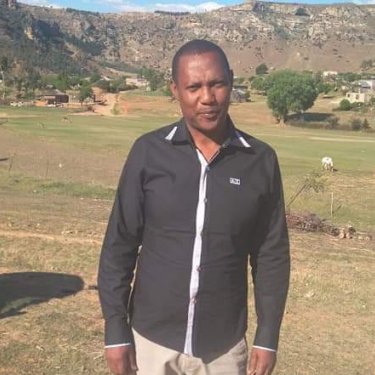Journalist flees South Africa after police beatings over lockdown reporting

Reporters Without Borders (RSF) calls on the South African authorities to guarantee the freedom and safety of journalists covering the coronavirus epidemic and to punish all those responsible for abuses against reporters, including the newspaper editor who fled to Lesotho last week after repeated police beatings.
This is the first time in post-apartheid South Africa that a journalist has fled the country with the intention of seeking asylum as a result of reprisals in connection with their reporting.
The editor of the Mohokare News community newspaper in Ficksburg, a town on the border with Lesotho, Paul Nthoba fled across the border into this small enclaved nation on 19 May, four days after being repeatedly assaulted by Ficksburg police in connection with his coverage of a lockdown enforcement operation.
Nthoba was initially punched and kicked by police while covering the operation in a Ficksburg township on 15 May. He told RSF that he went to Ficksburg police station the same day to file a complaint, but was punched and kicked again and was detained for several hours. “They promised to deal with me once I'm released," he said.
He reported the violence to the Independent Police Investigative Directorate, which polices the police, but was given no protection.
Instead, he was charged with violating lockdown regulations and is facing up to six months in prison under the Disaster Management Act, as amended in April to deal with the coronavirus pandemic. His trial is scheduled for 27 August.
“It is unthinkable in the South Africa of 2020 that a journalist should have to flee the country for covering a simple lockdown operation,” said Arnaud Froger, the head of RSF’s Africa desk. “The police cannot act with complete impunity on the grounds that they are enforcing the lockdown. And you mustn’t target the wrong enemy. Paul Nthoba committed no crime. The authorities must ensure that this journalist is able to return and resume working in complete freedom and safety. The charges against him must be dropped and those responsible for assaulting him must be punished.”
Rubber bullets were fired at News24 reporter Azarrah Karrim while she was covering a lockdown enforcement operation in Johannesburg on the first day of the nationwide lockdown in South Africa, the sub-Saharan country with the highest coronavirus death toll (481 on 26 May). The emergency measures it has adopted include the possibility of up to six months in prison for disseminating “false information” about the epidemic.
In Eswatini, a small enclaved nation between South Africa and Mozambique that is Africa’s only remaining absolute monarchy, Eugene Dube, the editor of Swati Newsweek website, was also forced to flee abroad last month after publishing articles criticizing the king and his government’s handling of the coronavirus crisis.
South Africa is ranked 31st out of 180 countries and territories in R
SF's 2020 World Press Freedom Index.



